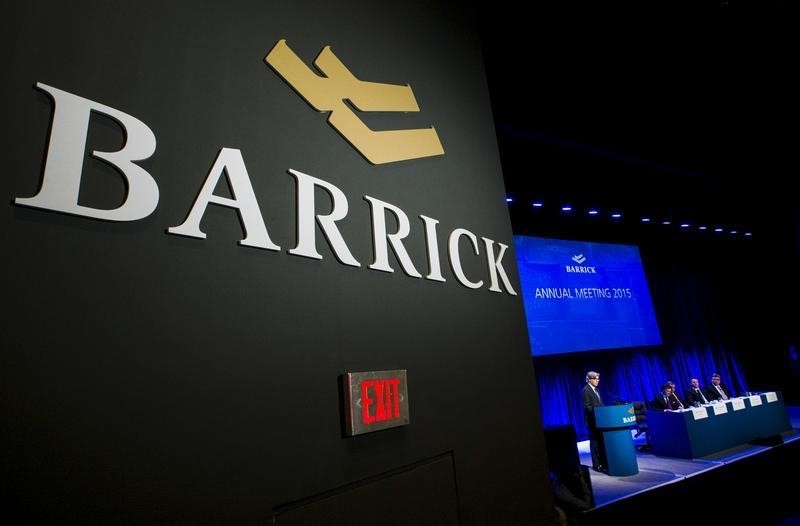(Bloomberg) -- Barrick Gold Corp (NYSE:GOLD) agreed to buy out minority shareholders in Acacia Mining PLC (LON:ACAA), ending a standoff between the two companies in a plan aimed at resolving the unit’s long-running dispute with Tanzania’s government.
The two companies had been debating the value of Acacia since Barrick’s informal offer in May to buy the roughly 36% stake in the company it doesn’t already own. Acacia has been locked in a public battle with Tanzania since 2017 and the agreement with Barrick follows days after the government ordered Acacia to stop using a tailings facility at a core gold mine.
Acacia’s shares rallied as much as 18% on the news and traded at 219.4 pence at 9:09 a.m. in London. The stock had gained 1.8% this year through Thursday.
Today’s news suggests Barrick Chief Executive Officer Mark Bristow was forced to shift his position that he wouldn’t raise the bid. In an interview with Bloomberg News in June, Bristow said he had no intention of raising the offer. But the CEO faced shareholder pressure in recent months, with Odey Asset Management opposing the valuation.
Still, the new bid gives Acacia shareholders a significant premium. Since mid-2017, Acacia shares have traded below Barrick’s current offer for all but a handful of days.
Acacia is fully satisfied with the final terms, said acting Chief Executive Officer Peter Geleta.
“Given all the circumstances this is possibly the best outcome,” he said by phone.
A successful deal would close the nearly decade-long chapter of Acacia’s life as a public miner, after the unit was spun out in 2010 as African Barrick Gold . Since then it’s fended off challenges spanning an infiltration by criminal gangs, to invasion by hundreds of intruders armed with machetes and hammers and mining-tax changes.
Two years ago, Tanzania imposed an export ban on Acacia and handed the miner a $190 billion tax bill. Since then, the company’s position in the country has deteriorated further, with the government saying in May it would no longer allow Acacia to manage its mines in the country and will only work with Barrick.
The dispute with Tanzania has had a crippling effect of Acacia’s business -- forcing the company to stockpile output and curb production -- and its shares dropped 50% since the start of 2017 before Thursday’s announcement.
Barrick has led discussions with the government in an effort to solve the impasse, while Acacia moved ahead separately with arbitration proceedings.
In a 2017 meeting between President John Magufuli and Barrick Executive Chairman John Thornton, it was tentatively agreed that Acacia would pay $300 million to the government to settle tax claims and would split future returns from operations with the country. At the time, Acacia criticized the move and blamed Barrick for its worsening relationship with Tanzania after Thornton took over negotiations.
